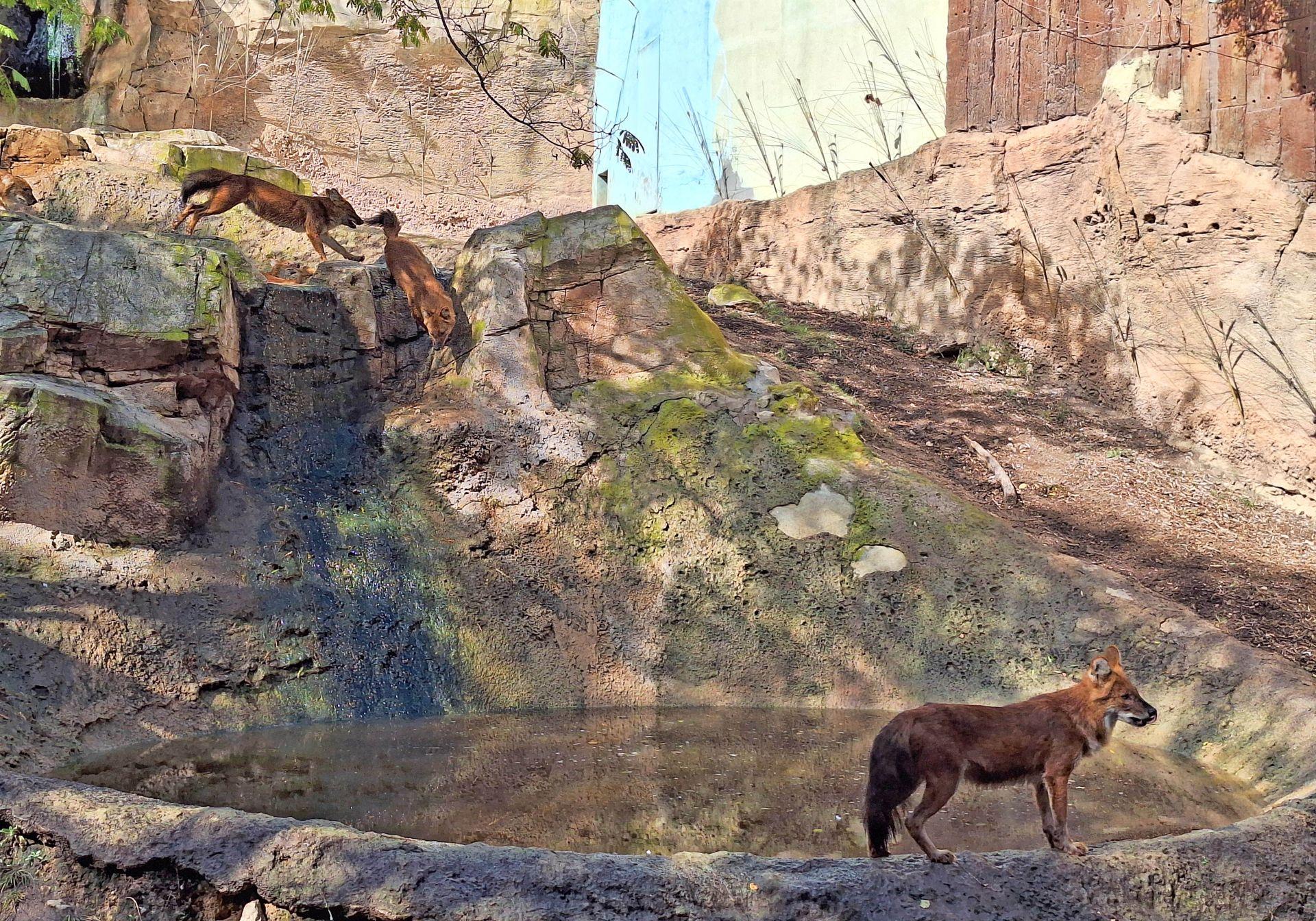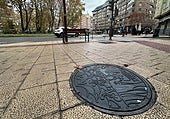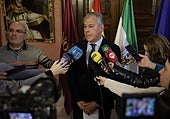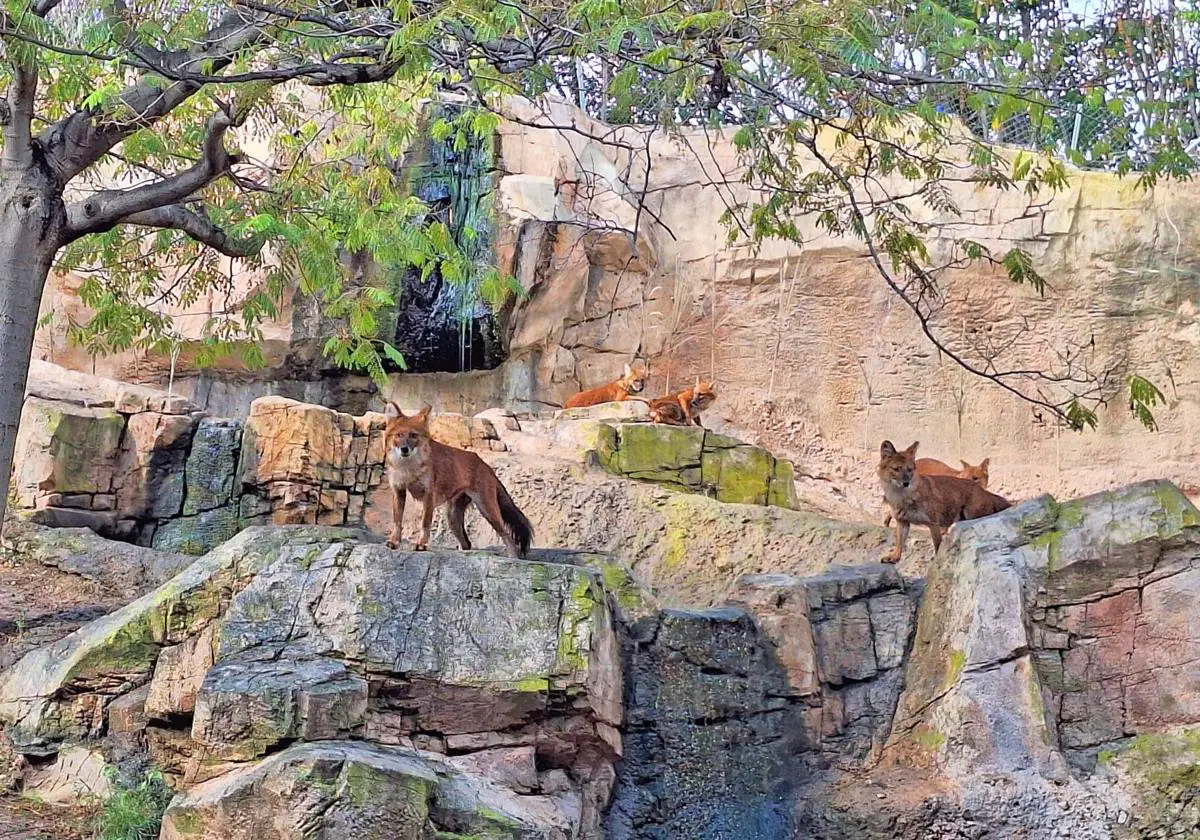Three Dhole Cubs Join Their Family Group at Terra Natura Benidorm
The cubs have experienced their first full integration with the rest of the clan after their mother's passing
Adrián Mazón
Alicante
Tuesday, 29 October 2024, 12:30
Three new dhole cubs, two males and one female, at Terra Natura Benidorm have already met the rest of their clan. They were born in March and were separated from the family group after their mother's death. During this time, the park's caretakers and veterinarians hand-raised them.
After a gradual adaptation process, the Terra Natura Benidorm team has conducted the first full integration of these dhole cubs with the rest of the clan in the outdoor enclosure. They closely monitor the behavior to ensure a "successful integration." This process is already a "significant milestone" in the care of the pack.
Related news
Three dhole cubs born at Terra Natura Benidorm
After their birth, the three dhole cubs lost contact with the group. However, the veterinarians and caretakers at Terra Natura Benidorm have carried out an integration process in several phases to "avoid potential conflicts" among the specimens.
The introduction process of the cubs with the rest of the family group began through separate spaces, with olfactory contact, followed by visual contact. This week, the first physical interaction took place in the park's nature and animal prairie environment.

During this first union, the adults have welcomed the young dhole cubs "very well" and have begun teaching them the social behavior typical of the species, so they learn and respect the pack's hierarchy. This gradual exposure, monitored by the caretakers, is necessary to ensure that interactions between adults and cubs develop without signs of stress or aggression.
Terra Natura Benidorm describes this first joint outing as a "success." "Everything indicates that the process will continue positively," the caretakers' team notes after six months of gradual adaptation since last March. "We have managed to unite them in the same space, always respecting their natural timing and ensuring their well-being."
Diet and characteristics of the dhole
The nature and animal park has also adapted the diet of this species for the three cubs to "ensure their optimal development and well-being." Each dhole consumes about a kilo of meat -with bones, skin, and feathers- per day, including beef, chicken, rabbit, and quail. This ensures that the specimens obtain all necessary nutrients and also mimics their natural diet.
This species, also known as Asian wild dogs, inhabits the forests of South and Southeast Asia and is endangered. They are similar in size to coyotes and have a distinctive reddish coat.
Additionally, dholes are distinguished by their sociability and clan structure, sometimes dividing into small groups to hunt medium-sized prey, such as deer and wild boar. They prioritize feeding their cubs after a hunt, a behavior that strengthens bonds within the group.
Habitat loss or competition with other predators, as well as diseases transmitted by domestic dogs, are some threats facing the species, which has an estimated global population of between 4,500 and 10,000 individuals. Terra Natura Benidorm has conservation programs to contribute to the protection of the dhole in collaboration with other zoological institutions and conservation groups.




